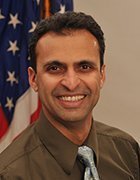 In August 2022 the Office of the National Coordinator for Health Information Technology (ONC) launched the 2022 Public Health Data Systems Task Force as a subcommittee of the Health Information Technology Advisory Committee (HITAC). The task force will meet through the beginning of November to present recommendations continuing and building upon the work of the 2021 task force. Members of the task force include individuals from various levels of government, relevant public health associations, and industry partners. Specifically, the task force is focused on the certification criteria for EHR products certified under the ONC Health IT Certification Program that cover transmission of data from EHRs to public health in these domains...
In August 2022 the Office of the National Coordinator for Health Information Technology (ONC) launched the 2022 Public Health Data Systems Task Force as a subcommittee of the Health Information Technology Advisory Committee (HITAC). The task force will meet through the beginning of November to present recommendations continuing and building upon the work of the 2021 task force. Members of the task force include individuals from various levels of government, relevant public health associations, and industry partners. Specifically, the task force is focused on the certification criteria for EHR products certified under the ONC Health IT Certification Program that cover transmission of data from EHRs to public health in these domains...
 As part of the ONC Health IT Certification Program, Congress mandated the establishment of an Electronic Health Record (EHR) Reporting Program to help determine the effectiveness of the program. The first step toward implementation was the development of an initial set of CEHRT developer metrics which were released in draft form in December 2021. When finalized, these metrics will represent data that EHR vendors will have to report to ONC as a Condition and Maintenance of Certification. The initial focus of the metrics developed was interoperability, and public health was one of four categories considered.
As part of the ONC Health IT Certification Program, Congress mandated the establishment of an Electronic Health Record (EHR) Reporting Program to help determine the effectiveness of the program. The first step toward implementation was the development of an initial set of CEHRT developer metrics which were released in draft form in December 2021. When finalized, these metrics will represent data that EHR vendors will have to report to ONC as a Condition and Maintenance of Certification. The initial focus of the metrics developed was interoperability, and public health was one of four categories considered.
 As part of ONC’s ongoing charge to coordinate across federal and industry stakeholders, we determined it was necessary to adjust our Standards Version Advancement Process (SVAP) timeline. Although it may seem like this process has been around for a while, it’s still brand new and we’ve been looking at ways to optimize how the process aligns with other standards development work in the community. The changes we’ve made will help ensure timely publication of implementation specifications central to our cadence for new versions of USCDI.
As part of ONC’s ongoing charge to coordinate across federal and industry stakeholders, we determined it was necessary to adjust our Standards Version Advancement Process (SVAP) timeline. Although it may seem like this process has been around for a while, it’s still brand new and we’ve been looking at ways to optimize how the process aligns with other standards development work in the community. The changes we’ve made will help ensure timely publication of implementation specifications central to our cadence for new versions of USCDI. As promised last week, I’ve read and taken detailed notes on the entire 962 page MACRA notice of proposed rulemaking (NPRM) so that you will not have to. Although this post is long, it is better than the 20 hours of reading I had to do! Here is everything you need to know from an IT perspective about the MACRA NPRM...What is the MACRA NPRM trying to achieve with regard to healthcare IT? The MACRA NPRM proposes to consolidate components of three existing programs, the Physician Quality Reporting System (PQRS), the Physician Value-based Payment Modifier (VM), and the Medicare Electronic Health Record (EHR) Incentive Program for eligible professionals (EPs), creating a single set of reporting requirements. The rule would sunset payment adjustments under the current PQRS, VM, and the Medicare EHR Incentive Program for eligible professionals...
As promised last week, I’ve read and taken detailed notes on the entire 962 page MACRA notice of proposed rulemaking (NPRM) so that you will not have to. Although this post is long, it is better than the 20 hours of reading I had to do! Here is everything you need to know from an IT perspective about the MACRA NPRM...What is the MACRA NPRM trying to achieve with regard to healthcare IT? The MACRA NPRM proposes to consolidate components of three existing programs, the Physician Quality Reporting System (PQRS), the Physician Value-based Payment Modifier (VM), and the Medicare Electronic Health Record (EHR) Incentive Program for eligible professionals (EPs), creating a single set of reporting requirements. The rule would sunset payment adjustments under the current PQRS, VM, and the Medicare EHR Incentive Program for eligible professionals...